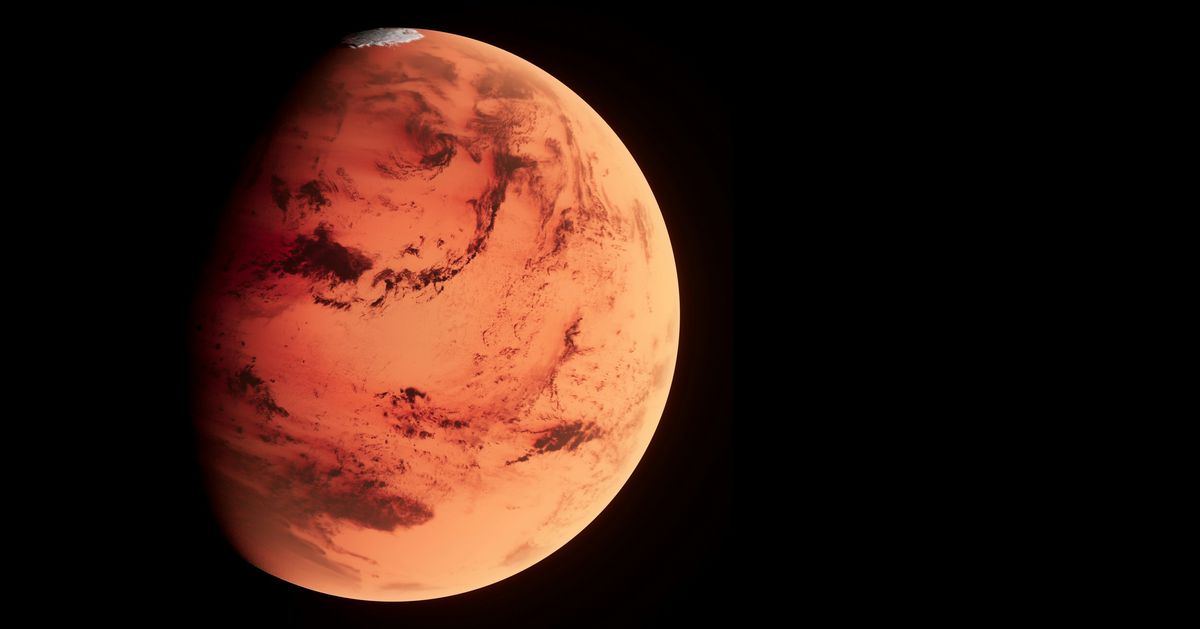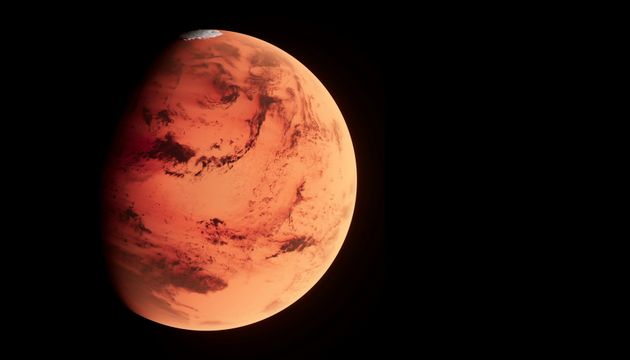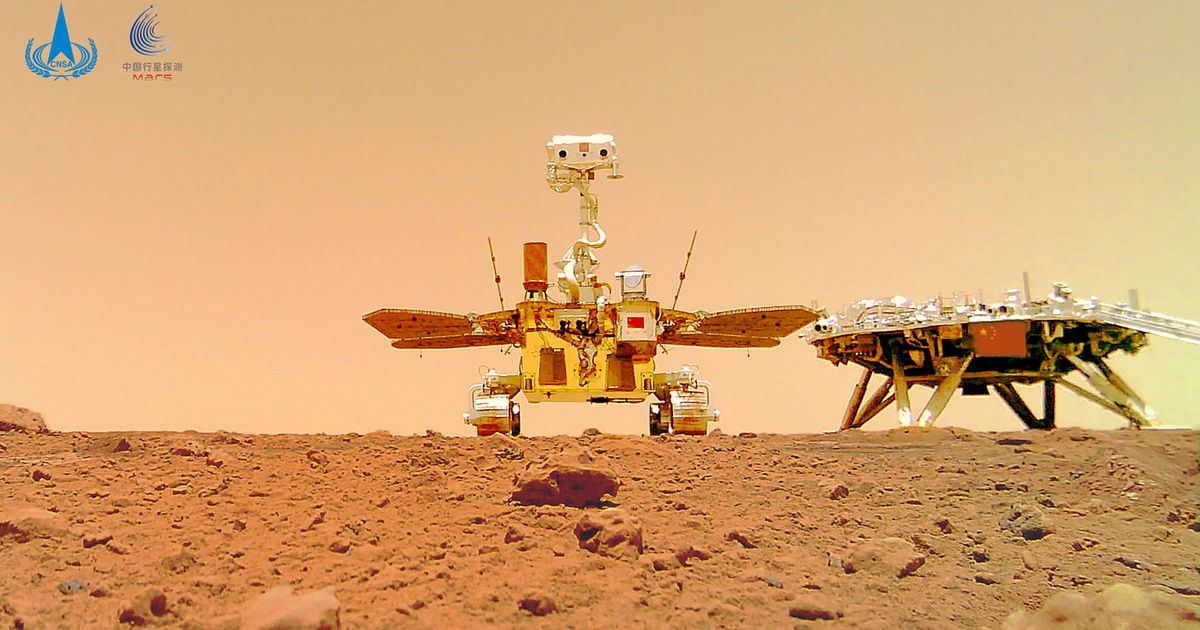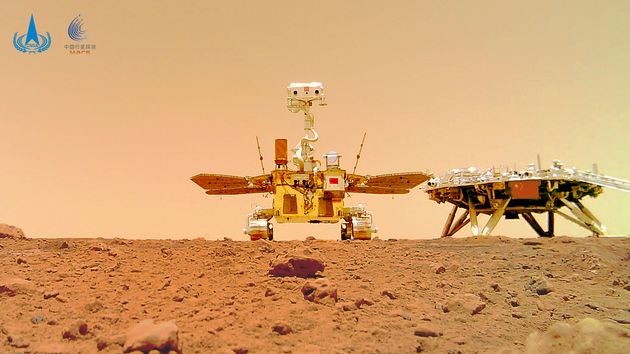
Did you know scientists weren’t sure why pee is yellow until 2024?
Yup ― they had some idea the hue came from a substance called urobilin, but had no clue how that colour-enhancing acid ended up in our urine.
It seems Mars is another such chromatic case. Until recently, scientists had theories which would explain the planet’s rust-red hue ― they thought a dry, powdery substance called hematite coated our neighbours’ surface.
Advertisement
But a paper published in Nature Communications yesterday suggests that the iron oxide mineral isn’t actually responsible for Mars’ scarlet haze.
So… why is Mars really red?
It’s still down to iron-based sources, researchers from Brown University and the University of Bernsuggest ― that would explain its rusty look.
But they think that ferrihydrite, rather than hematite, could be the main mineral.
That matters because it implies the climate on Mars is more wet, and potentially more habitable, than previously thought, NASA says.
Advertisement
Unlike hematite, ferrihydrite (catch the “hydr-” in its name) needs cool water to form.
It also needs a lower temperature than the one which researchers previously thought was present on Mars.
Dr Adam Valantinas, the study’s lead author, said: “The fundamental question of why Mars is red has been considered for hundreds if not for thousands of years.”
And while they’re not the first team to suggest that ferrihydrite might be to blame, they can “better test this using observational data and novel laboratory methods” than their predecessors.
Advertisement
“These new findings point to a potentially habitable past on Mars,” Dr Geronimo Villanueva, the study’s co-author, shared.
Does that mean there was definitely water, and maybe life, on Mars?
No. The researchers only think ferrihydrite is why Mars is red, and though they used very advanced technology to observe and model the planet’s surface, it’s still unproven.
“What’s even more important… is the return of the samples from Mars that are being collected right now by the Perseverance rover,” Dr Jack Mustard, co-author of the study, said.
“When we get those back, we can actually check and see if this is right.”





